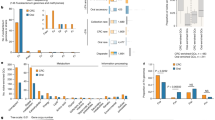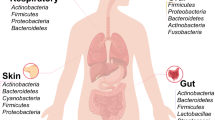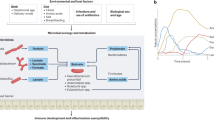Abstract
In a study of three socio-economic groups in Hong Kong, the high income group had a high faecal concentration of bile acids, especially the dihydroxy bile acids, compared to the low income group. The faecal bile acids were also more highly degraded. The faecal flora contained more bacteroides and fewer eubacteria. Very few of the clostridia able to dehydrogenate the steroid nucleus were isolated. An epidemiological study based on street blocks indicated that the high income group also have a higher incidence of cancer of the large bowel and of the breast. The results are discussed in terms of theories on the aetiology of large bowel cancer.
This is a preview of subscription content, access via your institution
Access options
Subscribe to this journal
Receive 24 print issues and online access
$259.00 per year
only $10.79 per issue
Buy this article
- Purchase on Springer Link
- Instant access to full article PDF
Prices may be subject to local taxes which are calculated during checkout
Similar content being viewed by others
Rights and permissions
About this article
Cite this article
Crowther, J., Drasar, B., Hill, M. et al. Faecal steroids and bacteria and large bowel cancer in Hong Kong by socio-economic groups. Br J Cancer 34, 191–198 (1976). https://doi.org/10.1038/bjc.1976.142
Issue Date:
DOI: https://doi.org/10.1038/bjc.1976.142
This article is cited by
-
Bile acid: a potential inducer of colon cancer stem cells
Stem Cell Research & Therapy (2016)
-
Carcinogenicity of deoxycholate, a secondary bile acid
Archives of Toxicology (2011)
-
The human intestinal microflora
Digestive Diseases and Sciences (1986)



